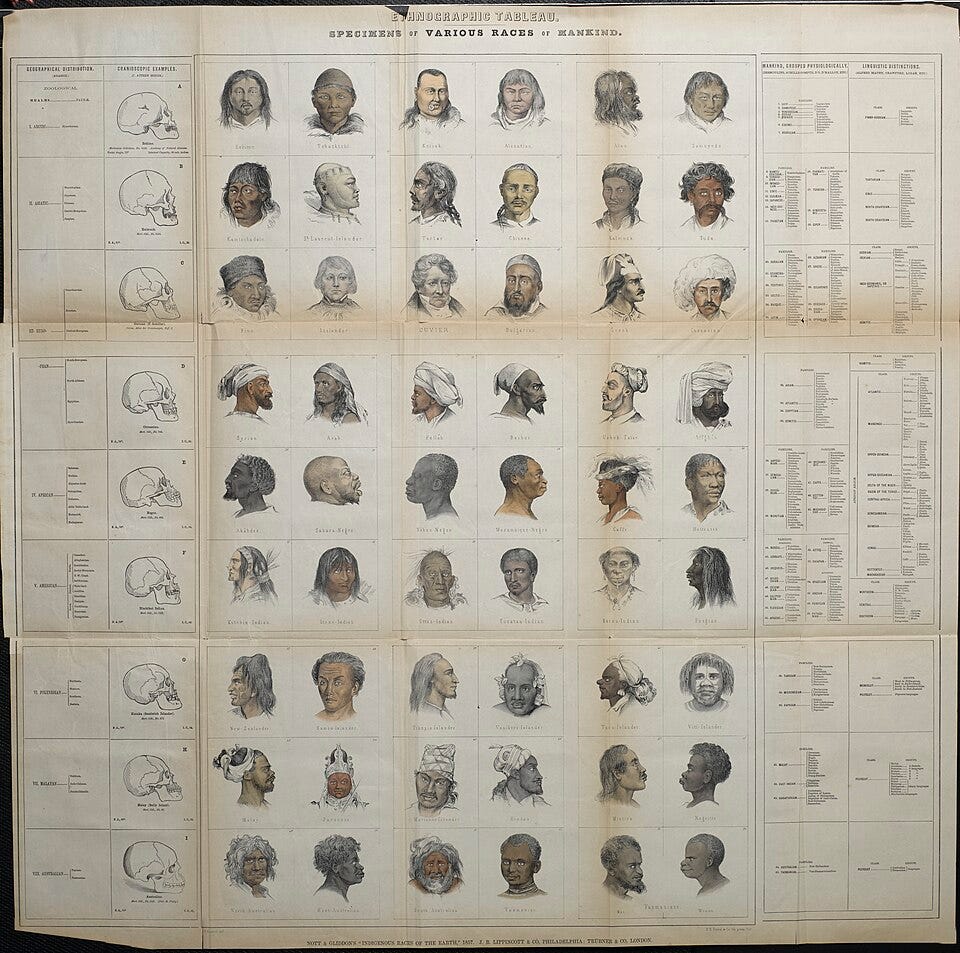It’s been about a week since I published a post on “The Jews,” so I figured I might continue down the path of controversial topics and tackle the issue of human biodiversity, or HBD. The term ‘human biodiversity’ often serves as a euphemism for debates about racial IQ differences, though it technically covers a broader range of physical and psychological traits. Interestingly, the topic shares a few surface similarities with anti-Semitic narratives: both tend to encourage deterministic thinking that attributes complex societal outcomes to a single cause. That said, the parallels are limited.
So why is the topic of race and IQ so extraordinarily controversial? What lies at the heart of the debate? The basic premise, though hotly disputed, is relatively straightforward: despite the prevailing ideological consensus rejecting it—often emphatically—numerous psychometric studies claim there are notable differences in average IQ levels among racial groups. This research splits into two broad areas: cross-national comparisons, and intra-national comparisons (such as within the United States).
Cross-national IQ comparisons are particularly fraught due to methodological inconsistencies. One immediately encounters problems related to sample representativeness. In one country, testing may be conducted on a demographically diverse and representative group; in another, it may be limited to wealthier, urban, or more educated populations. Unsurprisingly, the latter is likely to yield inflated scores. A classic example involves studies comparing IQ levels in Japan and the United States, where sample quality varied. In many of the world’s poorest countries, conducting representative IQ testing at all is extremely difficult.
This critique is central to the controversy surrounding Richard Lynn and Tatu Vanhanen’s 2002 book IQ and the Wealth of Nations. The authors argue that global economic disparities are largely explained by national differences in average IQ. The book has been widely criticised—primarily for the quality and representativeness of its data. For 81 of the 185 countries included, actual IQ test data was available. For the remaining 104 countries, IQ scores were extrapolated based on neighbouring countries. Moreover, many of the underlying studies involved very small or outdated samples. For example, Barbados’s national IQ was based on tests of 108 children aged 9–15; Colombia’s on just 50 teenagers; and Equatorial Guinea’s on a sample of 48 children aged 10–14. Given such limitations, much of the criticism seems justified.
Keep reading with a 7-day free trial
Subscribe to Kaiser Bauch to keep reading this post and get 7 days of free access to the full post archives.




